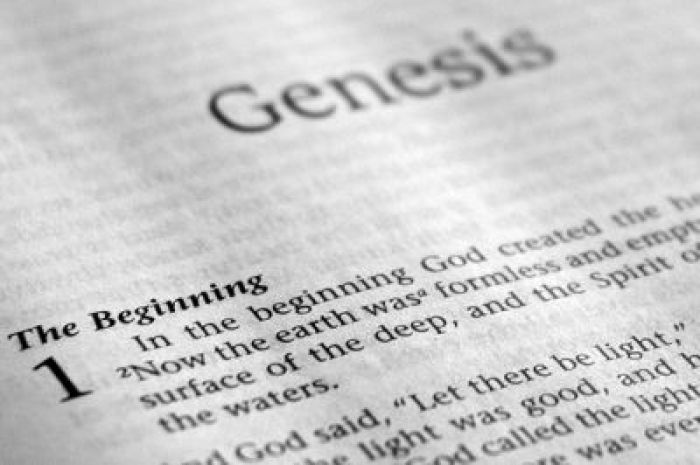Coram Deo: Creation Under the Face of God

When I return to the first few chapters of Genesis, I'm able not only to review the events of early human history but also to see how humanity hasn't outgrown our earliest aspirations. Perhaps most illustrative of my point is the story of the Tower of Babel in Genesis 11. We read in verse 1 that "the whole earth had one language and the same words."
Note the unity preserved from the original pre-fall creation. In the garden of Eden there were no translators; everyone spoke the same language. And even though sin intruded to destroy the harmony of the original creation, at least people could understand each other in the initial years of human expansion. They could speak the same language and communicate with some degree of harmony.
Speaking the same language and having the same values, this humanity built a city: "Come, let us build ourselves a city and a tower with its top in the heavens" (v. 4). From the beginning, the dream of human progress, the dream of the human spirit has been to build a city of such magnificence that it reaches to the pinnacle of heaven itself. It's part of our nature as human beings to build monuments to human accomplishment. We can go through the cities of this world and see magnificent human achievements.
We can view the Eiffel Tower from almost any point in and around Paris. No tourist in New York City fails to look for the Statue of Liberty or the Empire State Building. We can't go to Asia without wanting to walk on the Great Wall of China. When we go to Egypt, to the pyramids, we see monuments of ancient kings. Brick and mortar, steel and glass—we use whatever we can to somehow say that we are important, that we are significant, that we want to be remembered long a er we are dead and gone.
Listen to the sentiment expressed in Genesis 11: "Let us make a name for ourselves" (v. 4). Friedrich Nietzsche, the 19-century atheist philosopher, said the most fundamental drive of the human heart is the "will to power," a lust for dominance. This is what drives fallen humanity. It's the legacy of Eden, the living out of the serpent's seduction when he said, "You shall be as gods."
Why should God get all the glory? Why should the monuments of this world only be to the praise and honor of the Creator? Can't we share in that? Can't we claim it for ourselves? Can't we supplant Him as the Sovereign One? Let's gather together and build a city. Let's make monuments that even God cannot bring down, monuments that will endure forever: statues, walls, cathedrals, skyscrapers, and more.
I remember sitting transfixed and watching Walter Cronkite and some former astronauts describe the first landing of human beings on the moon. When I heard the words of Neil Arm- strong, "That's one small step for a man; one giant leap for mankind," I was as excited as anybody else by this incredible accomplishment, this conquest of a whole new frontier. But there was also something that bothered me when I heard those words. It sounded like the Tower of Babel all over again, a boasting in human achievement rather than bowing in prayer, saying, "This is for Your glory, O God. This is the fulfillment of the scientific enterprise You gave us in Eden to have dominion over the earth."
We've been called to have dominion over the earth to the glory of God, but we want dominion for the glory of man. That's what was going on at Babel—a distortion, an evil twisting of the legitimate task that God had given mankind.
There's nothing wrong with building. There's nothing wrong with sowing and reaping. Those are the tasks God gave to us in creation, but they're to be done under the authority of God. They're to be done coram Deo, before the face of God, under the authority of God, and unto the glory of God.
But what happened in the cosmic revolt? Man wanted to build a city for himself, to build his own kingdom, to make a name for himself, not for God. And this is not a story of ancient defects of human beings. This is our story. We're the players in this drama. Babel is representative of the whole human enterprise that we are so busily engaged in. "Let's build a city. Let's make a name for ourselves."
Then we read in chapter 11 of Genesis that "the Lord came down to see the city and the tower, which the children of man had built" (v. 5). God inspected the city of man, and He didn't like what He saw:
The Lord said, "Behold, they are one people, and they have all one language, and this is only the beginning of what they will do. And nothing that they propose to do will now be impossible for them. Come, let us go down and there confuse their language, so that they may not understand one another's speech." So the Lord dispersed them from there over the face of all the earth, and they le o building the city. Therefore its name was called Babel, because there the Lord confused the language of all the earth. (vv. 6–9a)
The greatest building project mankind ever attempted was resisted by God. And it ended in chaos and confusion.
Every attempt of man to build his own ultimate city and kingdom will end in chaos. Any success we enjoy will be shortlived, for the Lord will bring into judgment every hidden thing, every secret thought (Eccl. 12:14). Nothing built for the glory of man will survive His scrutiny. But what is done for God's glory will endure forever.
This article was originally published at Ligonier.org
Ligonier Ministries was founded by Dr. R.C. Sproul to help Christians know what they believe, why they believe it, how to live it, and how to share it.
Visit Ligonier Ministries at http://www.ligonier.org to access more than 8,000 faith-building resources.




























